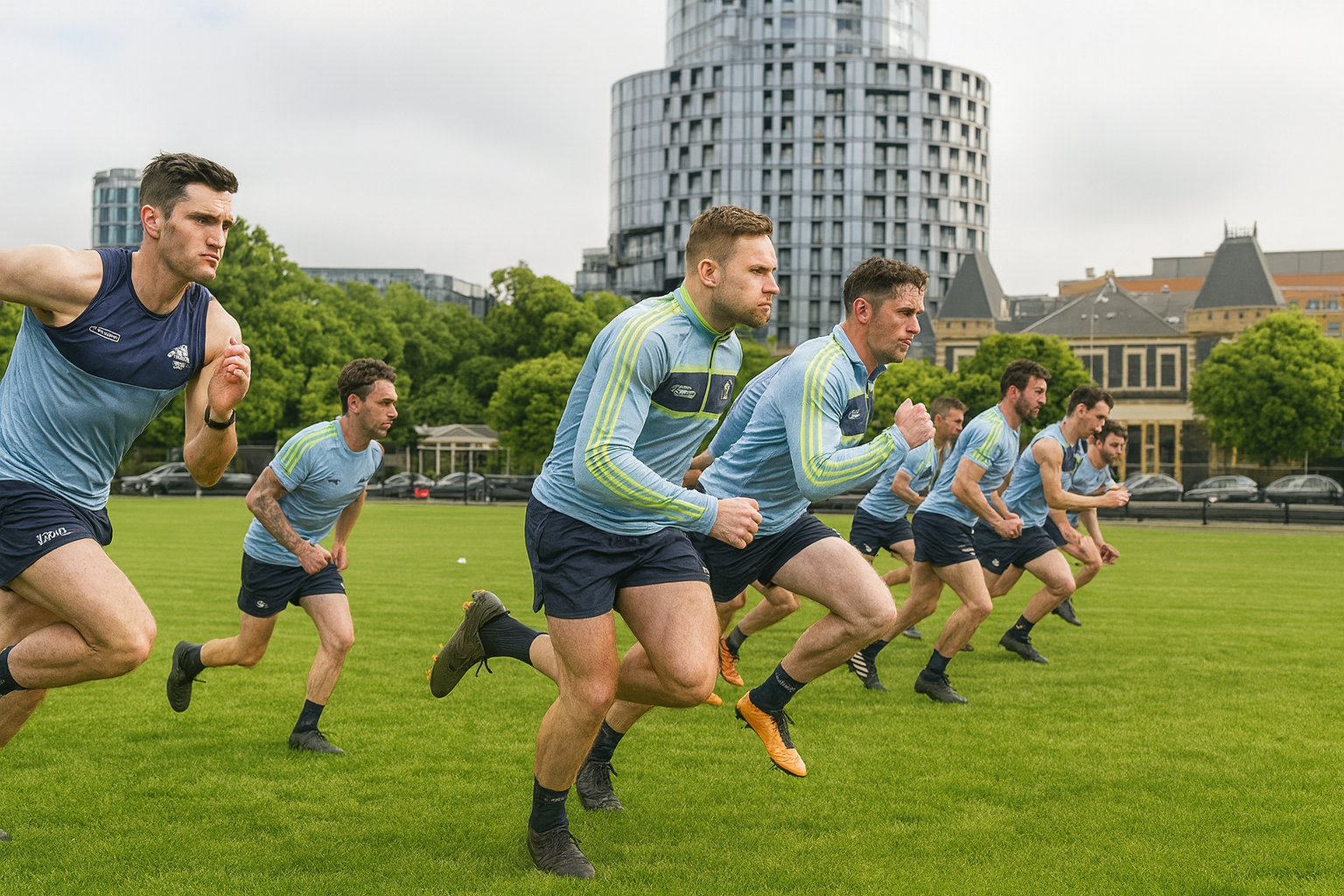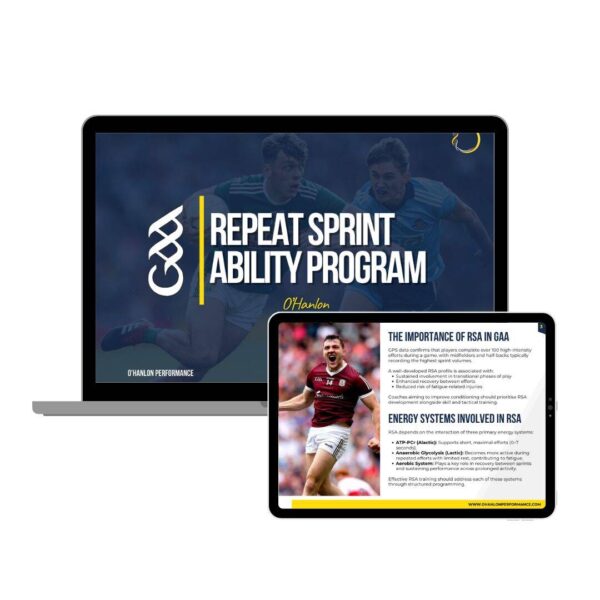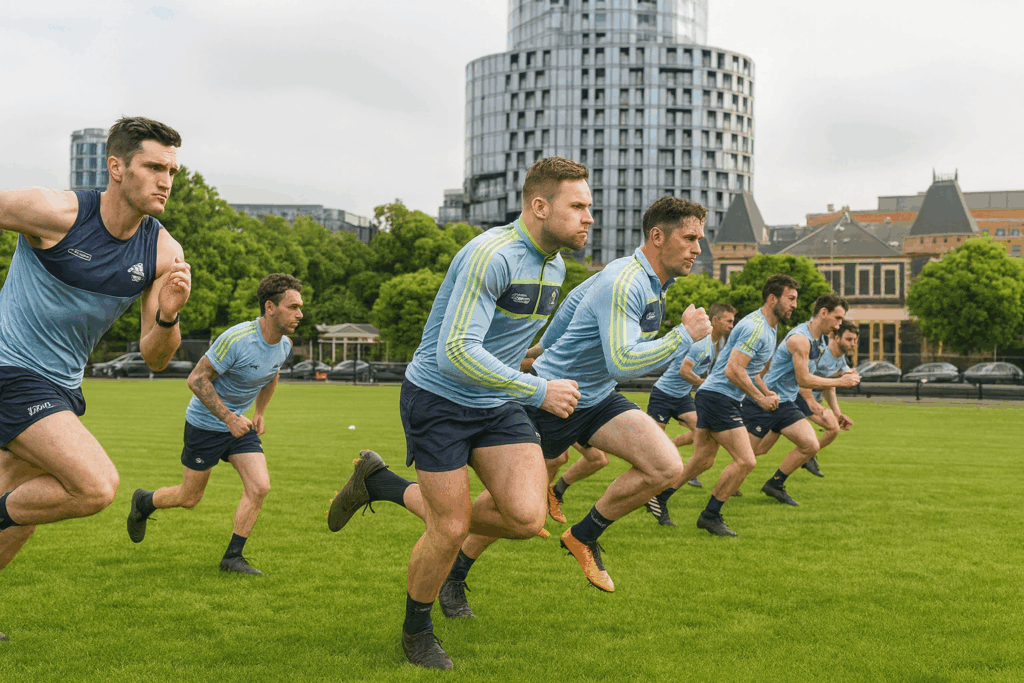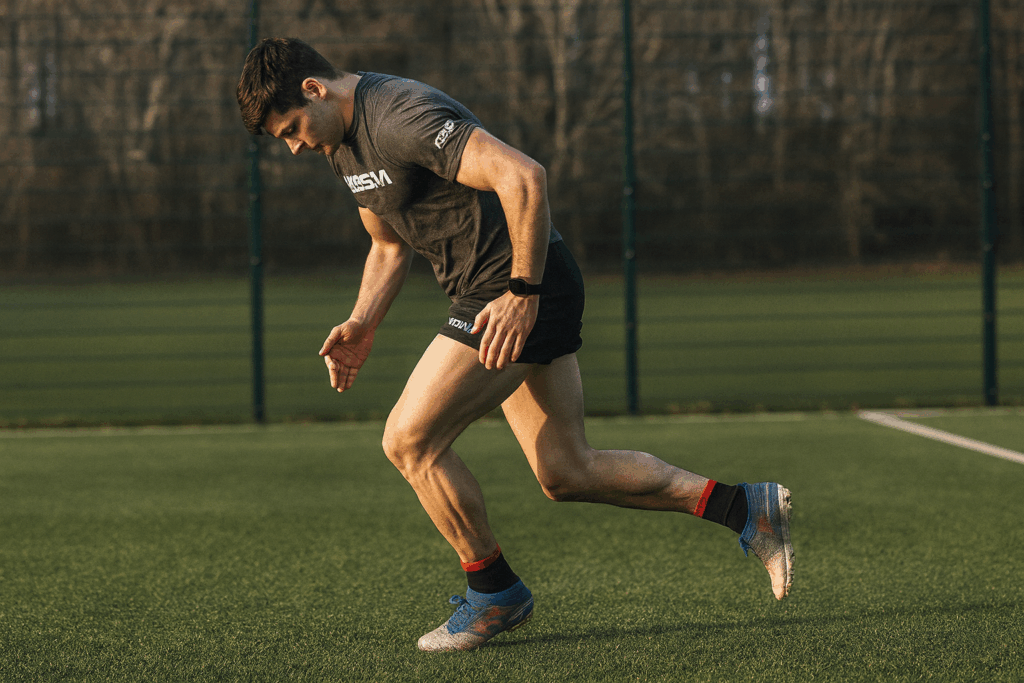Introduction
Repeat Sprint Ability (RSA) refers to a player’s capacity to perform repeated short-duration sprints with minimal recovery. In Gaelic football, where match-play involves frequent high-intensity efforts and short rest intervals, RSA is a foundational quality for performance, especially for midfielders, half-backs, and half-forwards.
This guide combines insights from scientific research with practical coaching strategies to help players and coaches understand, test, and improve RSA for Gaelic football.
Why Repeat Sprint Ability Matters in GAA
Research has shown that elite Gaelic footballers cover:
- 8160–9222 m per game
- 445–524 m of sprinting (>22 km/h)
- 166–184 accelerations during match-play
“Fatigue-related drops in high-speed running and sprint output during the second half highlight the importance of RSA training for maintaining performance” – Malone et al., 2017; Ryan et al., 2018
How to Test Repeat Sprint Ability
A practical and validated RSA test protocol for GAA:
- 6 x 30m sprints
- 20 seconds recovery between sprints
- Measure: Best time, mean time, and fatigue index
These measures give a snapshot of peak sprint speed and the ability to repeat efforts under fatigue, which reflects match conditions.
Sprint Norms in Gaelic Football (Elite Adult Players)
| Test | Performance (Mean ± SD) |
|---|---|
| 5m Sprint | 1.10 ± 0.11 sec |
| 10m Sprint | 1.82 ± 0.12 sec |
| 20m Sprint | 3.09 ± 0.16 sec |
| CMJ Height | 38.0 ± 5.0 cm |
Source: Shovlin et al., 2018; Kelly & Collins, 2018
How to Improve Repeat Sprint Ability
1. Repeated Sprint Training (RST)
Format: 2–3 sets of 6–8 sprints (20–30m), 20–30 sec rest
Why: Mimics game scenarios; improves both anaerobic power and sprint economy
2. Sprint Interval Training (SIT)
Format: 10 x 20m or 6 x 40m sprints, full recovery
Why: Builds speed reserve and enhances max effort quality
3. Aerobic Conditioning
Methods: Yo-Yo Intermittent Recovery Test Level 1, tempo runs, small-sided games (3v3, 5v5)
Why: Supports recovery between sprints; reduces fatigue
“Higher Yo-Yo IRT1 scores are associated with reduced performance decrement and greater in-game running output” – Boyle et al., 2021
4. Strength & Power Training
Exercises: Trap bar deadlift, Bulgarian split squat, CMJ variations, med ball throws
Why: Improves sprint mechanics and force output during acceleration
Sample RSA Training Session (In-Season)
| Block | Drill | Volume |
| Warm-Up | Dynamic activation + sprint drills | 10 mins |
| Sprint Block | Flying 10s, 3 x 2 reps | Full recovery |
| RSA Block | 2 sets of 6 x 20m sprints (20s rest) | 3 min rest between sets |
| Aerobic Block | 3 x 3 min small-sided games (90% HRmax) | 1 min rest |
| Cool Down | Foam rolling + hip mobility | 5-10 mins |
Position-Specific Application
- Midfielders: Require the highest RSA; more aerobic and repeated sprint emphasis
- Half-Backs/Forwards: Focus on accelerations, decelerations, and repeat high-speed efforts
- Full-Backs/Forwards: Shorter, sharper sprint bursts with greater power focus
Summary
RSA is a critical quality for maintaining performance in Gaelic football, especially in high-workload positions. Incorporating a combination of sprint, strength, and aerobic training will significantly improve your ability to perform repeated efforts under fatigue.
References
- Malone S et al., 2017. J Strength Cond Res
- Ryan M et al., 2018. J Strength Cond Res
- Shovlin A et al., 2018. J Strength Cond Res
- Kelly RA, Collins K., 2018. J Strength Cond Res
- Boyle E et al., 2021. Sport Sci Health






